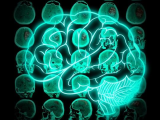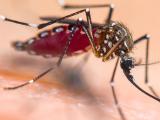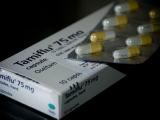Sep 16, 2010
CDC, medical groups encourage flu vaccine for pregnant women
The Centers for Disease Control and Prevention, the March of Dimes, and eight medical groups sent a letter yesterday to thousands of healthcare providers to encourage them to tell pregnant patients and those who have recently given birth to receive a seasonal flu vaccine, which this year also protects against 2009 pandemic H1N1 influenza. The letter states, "The Advisory Committee on Immunization Practices (ACIP) recommends that pregnant and postpartum women receive the seasonal influenza vaccine this year, even if they received 2009 H1N1 or seasonal influenza vaccine last year." It lists several reasons, including that pregnant women typically suffer more serious illness when infected, that flu may lead to premature labor, and that the vaccine also protects infants when administered to their mothers. The letter, signed by the American Academy of Family Physicians, American College of Obstetricians and Gynecologists, American Medical Association, American Nurses Association, and other groups, also details the safety of the flu vaccine.
California sees sporadic flu cases
State health officials in California are seeing sporadic flu cases, and the emergency department at Northridge Hospital Medical Center has treated seven patients so far this week, which a hospital official gauged as low activity but more than the facility expects for this time of year, the Los Angeles Daily News reported yesterday. Michael Sicilia, a spokesman for the California Department of Public Health (CDPH) told the Daily News that seeing flu cases in September isn't surprising. In other developments, the CDPH, in a move to re-engage the public about flu prevention, yesterday launched its second annual flu-fighting film and poster festival. The winning videos will be used as public service announcements and showcased on the CDPH Web site and other online portals.
Sep 15 Los Angeles Daily News story
Sep 15 CDPH press release
Study plots risk-benefit profile of flu vaccine linked to kids' seizures
Months after Australian and New Zealand authorities suspended giving CSL Biotherapies' seasonal flu vaccine, which contains the 2009 H1N1 strain, Australian researchers have calculated the risks and benefit of the vaccine. Neither health authorities in Australia nor the company have determined a reason for increased reports of febrile convulsions in young children, particularly in Western Australia. In today's issue of Eurosurveillance, researchers report that the CSL vaccine might have caused two or three hospital admissions for febrile convulsions for every flu hospitalization it prevented. For comparison, they found that Solvay Pharmaceuticals' flu vaccine may have caused one or two febrile convulsions and at most one hospital admission for each flu hospitalization prevented. They also did not see any risk-benefit problems with vaccines made by CSL in 2008 and 2009. The authors concluded that a good past risk-benefit profile doesn't always guarantee a good future profile, which highlights the importance of comprehensive vaccine safety monitoring.
Sep 16 Eurosurveillance report
GAO to review FBI's scientific methods in anthrax probe
The US Government Accountability Office (GAO), the investigative arm of Congress, has said it will review the scientific and technical methods the FBI used in investigating the anthrax letter attacks of 2001. The GAO is taking the action at the request of Rep. Rush Holt, D-N.J., and four other lawmakers who requested the review in May, according to a GAO letter that was published online by Holt's office. The FBI concluded in 2008 that the anthrax attacks, which killed 5 people and sickened 17 others, were perpetrated by Army scientist Bruce Ivins. He committed suicide by taking an overdose of medication shortly before he was to be charged in the case. The GAO letter notes that the National Academy of Sciences (NAS), at the FBI's request, is currently reviewing the FBI's scientific work in the case, and the findings are due out this fall. To avoid duplication or overlap, the GAO will review the NAS findings before deciding the scope of its own review, according to the letter. Holt is a longtime critic of the FBI's anthrax probe, and the tainted letters were mailed from a box in Princeton, N.J., which is in his district, the Wall Street Journal (WSJ) noted yesterday.
Aug 27 GAO letter to Holt
Sep 15 WSJ story
WHO: Dengue threat growing in Asia, Pacific
The World Health Organization (WHO) today warned that the number of severe dengue infections and hospitalizations in the Asian Pacific region continues to grow, with some countries reporting significant increases over the same time last year. In a statement, the WHO said dengue is one of the fastest emerging infections in the world and that more than 70% of the at-risk population live in Asian Pacific countries, with Laos, Malaysia, the Philippines, and Vietnam among the hardest-hit areas. Though Singapore had a spike in dengue infections in recent months, its number of infections over the years continues to decrease, perhaps because of an effective response system, the WHO said. Increases noted in other countries could be due to a combination of factors, including higher temperatures and rainfall this year, growing population densities, and greater international travel. It said though there is no evidence that global warming is driving the increase in dengue cases in the area, climate changes play a spatial and temporal role in disease distribution. The mosquitoes that spread the virus are now found in areas where they were rare, including South Korea and the highlands of Papua New Guinea. Dr Shin Young-soo, who directs the WHO's Western Pacific region, said the agency is working closely with countries on surveillance activities.


















